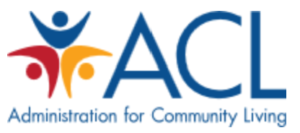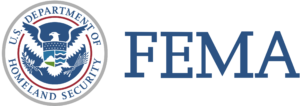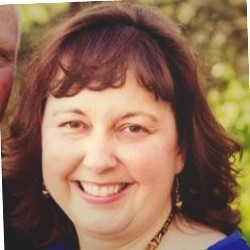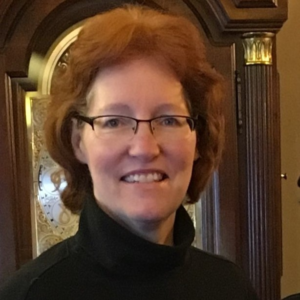ACL and FEMA/ODIC Disaster Webinar Series
Strengthening Disaster Preparedness and Response for Aging and Disability Communities
The Administration for Community Living (ACL) and the Office of Disability Integration and Coordination (ODIC) at FEMA are coordinating a series of webinars in 2024. The first webinar in the series of four was 90 minutes and took place Thursday, April 18, 2024. An archive will be shared.
This is a summary of the first webinar in the series: Midwest Disaster Preparedness for Organizations that Serve and Support People with Disabilities and Older Adults. For more about this webinar and the series click here.
 Ed Ahern at ACL facilitated a vibrant dialog with Alison Barkoff, Principal Deputy Administrator of ACL, and Sherman Gillums, Jr, Ed.D., Director of ODIC. They focused on enhancing disaster preparedness and response for individuals with disabilities and older adults. The insights shared highlighted the critical role both organizations play, emphasizing collaboration and advanced planning to address the needs of disability and aging communities before, during, and after disasters.
Ed Ahern at ACL facilitated a vibrant dialog with Alison Barkoff, Principal Deputy Administrator of ACL, and Sherman Gillums, Jr, Ed.D., Director of ODIC. They focused on enhancing disaster preparedness and response for individuals with disabilities and older adults. The insights shared highlighted the critical role both organizations play, emphasizing collaboration and advanced planning to address the needs of disability and aging communities before, during, and after disasters.
Alison opened the conversation by highlighting the expansive role of ACL, which administers programs across every state, serving as a crucial advisory to the Secretary of HHS on policies impacting people with disabilities and older adults. She underscored the disproportionate they face during disasters and highlighted the work Centers for Independent Living (CILs), Developmental Disability Councils (DD Councils), Protection and Advocacy Agencies (P&As), Area Agencies on Aging (AAAs), and Assistive Technology (AT) programs are doing across the country to prepare for, respond to, and recover from disasters.
A significant focus was placed on the integration of disability and aging programs within emergency management. Barkoff stated, “There is such an incredible moment right now. There's federal momentum in disability in part because of the COVID pandemic, and the incredible work that the Aging and disability networks did in creating partnerships with public health systems [and] emergency response systems."
Barkoff also shared there is momentum picking up for the REAADI for Disasters Act, and noted the new proposed provisions for the Older Americans Act regarding emergency preparedness and response.
Sherman echoed Barkoff's sentiments on the necessity of preparedness, especially as disasters become more frequent and intense. He brought a personal perspective to the discussion, sharing, “It's an emerging reality, as we find ways to help survivors recover faster. A critical part of the work that we do as weather becomes more frequent and intense in places where they're not used to seeing such weather events."
intense. He brought a personal perspective to the discussion, sharing, “It's an emerging reality, as we find ways to help survivors recover faster. A critical part of the work that we do as weather becomes more frequent and intense in places where they're not used to seeing such weather events."
Gillums shared, “This disability integration guidance outlines 14 Points of Inequity… for disruptions along the survivor journey that hamper recovery for persons with disabilities across the majority of disasters. These inequities typically started with a lack of inclusion in disaster planning and continued through inaccessible communication, transportation, sheltering, and ultimately housing.” He added, “The cumulative effect of these inequities was a longer disaster cycle on average for survivors with disabilities or other access and functional needs when compared to outcomes upon other survivors.”
Sherman also gave a shout out to The Partnership for Inclusive Disaster Strategies, and how they connect him to CILs after disasters strike from Puerto Rico to Florida, to Tennessee.
Both discussed the strategic moves being made to enhance partnerships and leverage federal support to improve disaster readiness and response for disabled and older survivors. The creation of a human services disaster fund proposed in recent federal budgets was particularly noted by Barkoff as a critical development to ensure real-time funding and support for their networks during emergencies. Moreover, the response to disasters like the recent events in Maui was highlighted as a testament to the successful collaboration between aging and disability networks and major federal agencies like FEMA. “In the recent disasters in Maui, we saw collaboration happening not only among the Aging and disability networks, but our networks working with FEMA, our networks working with other HHS partners that are the first responders in a way that we have never ever been able to see,” Barkoff remarked.
Then Ed introduced three ACL awardee panelists:
 Kristen shared about the bomb cyclone in 2019 that hit Nebraska which led to widespread damage due to blizzard conditions and flooding. Reports indicated gaps in personal preparedness plans, equally effective communication in public announcements, and some emergency shelter staff were not fully aware of the needs and rights of individuals with disabilities pointing to the need for training on inclusive emergency management and disability awareness. To address these issues, ACL facilitated listening sessions in Nebraska, where individuals with disabilities, their families, and support networks could share their experiences and insights. These sessions proved invaluable for gathering firsthand accounts of the barriers faced during emergencies and disasters; they also informed ACL’s strategies for enhancing support, training, and technical assistance in Nebraska and nationwide.
Kristen shared about the bomb cyclone in 2019 that hit Nebraska which led to widespread damage due to blizzard conditions and flooding. Reports indicated gaps in personal preparedness plans, equally effective communication in public announcements, and some emergency shelter staff were not fully aware of the needs and rights of individuals with disabilities pointing to the need for training on inclusive emergency management and disability awareness. To address these issues, ACL facilitated listening sessions in Nebraska, where individuals with disabilities, their families, and support networks could share their experiences and insights. These sessions proved invaluable for gathering firsthand accounts of the barriers faced during emergencies and disasters; they also informed ACL’s strategies for enhancing support, training, and technical assistance in Nebraska and nationwide.
She also shared how the Nebraska Panhandle created a FEMA Core Advisory Groups (CAG). The CAGs are encouraged to be made of people with cross-disabilities to ensure that a variety of disabilities are represented in state and local emergency management planning. By incorporating marginalized voices directly into the planning process, CAGs goal is to strengthen collaboration between emergency managers and the disability community.

Reflecting the commitment seen in Nebraska, Marsha, shed light on Missouri's approaches to disaster preparedness for older adults and adults with disabilities. Marsha highlighted the strategic creation of specialized committees designed to ensure comprehensive disaster readiness and effective response strategies across the state.
One such committee is the Governor’s Faith-Based and Community Service Partnership for Disaster Recovery. It was created in response to the devastating flood of '93, and it focused on enhancing Missouri's capacity to recover from disasters through a whole community approach that maximizes public and private resources. This committee emphasizes recovery and works hand in hand with response-focused organizations to address comprehensive disaster recovery issues including housing, human services, infrastructure, and economic development. Another one is the Access and Functional Needs Committee which make sure they are represented throughout the committees and are included in every phase of planning and development of exercises. Marsh shared they also “provide education to all of our law enforcement, jurisdictions, all of our emergency managers on disability awareness, and they are the resource when we have a disaster.”
Marsha recommends “Check with your emergency management agency to see what committees you can participate in…” “You have value. Your agency has value, you as an individual with a disability, you have value. Letting your local emergency manager know that you can make their life easier, will absolutely get you a seat at the table.”
 Thane, from a CIL in Illinois that has been involved in emergency planning for over a decade. He detailed how the CIL has been instrumental in addressing the specific needs of people with disabilities during emergencies, ensuring they can remain independent rather than being institutionalized. A notable achievement was the establishment of an Access and Functional Needs (AFN) committee in the Illinois Emergency Management Agency that includes persons with access and functional needs with lived experience, law enforcement, and emergency managers to oversee these initiatives. Thane stated, “The whole goal is to ensure that we have AFN represented, but not only represented, helping make the decision. He went on to share, “Kira Meskin from Progress Center For Independent Living and other CIL advocates pushed really hard to get this committee started in the state of Illinois, and it was done.”
Thane, from a CIL in Illinois that has been involved in emergency planning for over a decade. He detailed how the CIL has been instrumental in addressing the specific needs of people with disabilities during emergencies, ensuring they can remain independent rather than being institutionalized. A notable achievement was the establishment of an Access and Functional Needs (AFN) committee in the Illinois Emergency Management Agency that includes persons with access and functional needs with lived experience, law enforcement, and emergency managers to oversee these initiatives. Thane stated, “The whole goal is to ensure that we have AFN represented, but not only represented, helping make the decision. He went on to share, “Kira Meskin from Progress Center For Independent Living and other CIL advocates pushed really hard to get this committee started in the state of Illinois, and it was done.”
Thane also added that the CIL, Advocates for Access, has been crucial in providing training for law enforcement and emergency managers on how to accommodate persons with disabilities during disasters. The work extended to include disability representation in exercises and participation throughout every stage.
These efforts demonstrate the critical role the disability community has in supporting emergency management, and illustrate models of effective collaboration and advocacy that ensures preparedness, response, and recovery is adaptive, equitable, and inclusive.
Ed thanked all the speakers graciously, along with the webinar participants which almost reached 700 people out of nearly 1,400 registrants before giving the last word to Alison Barkoff and Sherman Gillums.
Alison reaffirmed ACL's commitment to advocating for resources and supporting the vital roles that Aging and Disability Networks play in disaster planning, response, and recovery. She went on to emphasize the strength built by collaboration, such as with partners like FEMA/ODIC, appreciating their joint efforts in the webinar series and joint efforts.
Sherman emphasized the critical importance of readiness in disaster response, stating that the actions provided by the ODIC at FEMA are fundamental to ensuring that communities have the necessary support to maintain resilience and recover from disasters. He stressed the necessity of being prepared ahead of disasters, underscoring the ongoing need for whole community engagement and preparedness.
Sign up to receive ACL announcements here and FEMA announcements here and stay tuned for the next webinar!
ACL and FEMA/ODIC Disaster Webinar Series – Summary 1
Leave a Comment
Updated: April 19, 2024 by admin
ACL and FEMA/ODIC Disaster Webinar Series
Strengthening Disaster Preparedness and Response for Aging and Disability Communities
The Administration for Community Living (ACL) and the Office of Disability Integration and Coordination (ODIC) at FEMA are coordinating a series of webinars in 2024. The first webinar in the series of four was 90 minutes and took place Thursday, April 18, 2024. An archive will be shared.
This is a summary of the first webinar in the series: Midwest Disaster Preparedness for Organizations that Serve and Support People with Disabilities and Older Adults. For more about this webinar and the series click here.
Alison opened the conversation by highlighting the expansive role of ACL, which administers programs across every state, serving as a crucial advisory to the Secretary of HHS on policies impacting people with disabilities and older adults. She underscored the disproportionate they face during disasters and highlighted the work Centers for Independent Living (CILs), Developmental Disability Councils (DD Councils), Protection and Advocacy Agencies (P&As), Area Agencies on Aging (AAAs), and Assistive Technology (AT) programs are doing across the country to prepare for, respond to, and recover from disasters.
A significant focus was placed on the integration of disability and aging programs within emergency management. Barkoff stated, “There is such an incredible moment right now. There's federal momentum in disability in part because of the COVID pandemic, and the incredible work that the Aging and disability networks did in creating partnerships with public health systems [and] emergency response systems."
Barkoff also shared there is momentum picking up for the REAADI for Disasters Act, and noted the new proposed provisions for the Older Americans Act regarding emergency preparedness and response.
Sherman echoed Barkoff's sentiments on the necessity of preparedness, especially as disasters become more frequent and intense. He brought a personal perspective to the discussion, sharing, “It's an emerging reality, as we find ways to help survivors recover faster. A critical part of the work that we do as weather becomes more frequent and intense in places where they're not used to seeing such weather events."
intense. He brought a personal perspective to the discussion, sharing, “It's an emerging reality, as we find ways to help survivors recover faster. A critical part of the work that we do as weather becomes more frequent and intense in places where they're not used to seeing such weather events."
Gillums shared, “This disability integration guidance outlines 14 Points of Inequity… for disruptions along the survivor journey that hamper recovery for persons with disabilities across the majority of disasters. These inequities typically started with a lack of inclusion in disaster planning and continued through inaccessible communication, transportation, sheltering, and ultimately housing.” He added, “The cumulative effect of these inequities was a longer disaster cycle on average for survivors with disabilities or other access and functional needs when compared to outcomes upon other survivors.”
Sherman also gave a shout out to The Partnership for Inclusive Disaster Strategies, and how they connect him to CILs after disasters strike from Puerto Rico to Florida, to Tennessee.
Both discussed the strategic moves being made to enhance partnerships and leverage federal support to improve disaster readiness and response for disabled and older survivors. The creation of a human services disaster fund proposed in recent federal budgets was particularly noted by Barkoff as a critical development to ensure real-time funding and support for their networks during emergencies. Moreover, the response to disasters like the recent events in Maui was highlighted as a testament to the successful collaboration between aging and disability networks and major federal agencies like FEMA. “In the recent disasters in Maui, we saw collaboration happening not only among the Aging and disability networks, but our networks working with FEMA, our networks working with other HHS partners that are the first responders in a way that we have never ever been able to see,” Barkoff remarked.
Then Ed introduced three ACL awardee panelists:
She also shared how the Nebraska Panhandle created a FEMA Core Advisory Groups (CAG). The CAGs are encouraged to be made of people with cross-disabilities to ensure that a variety of disabilities are represented in state and local emergency management planning. By incorporating marginalized voices directly into the planning process, CAGs goal is to strengthen collaboration between emergency managers and the disability community.
Reflecting the commitment seen in Nebraska, Marsha, shed light on Missouri's approaches to disaster preparedness for older adults and adults with disabilities. Marsha highlighted the strategic creation of specialized committees designed to ensure comprehensive disaster readiness and effective response strategies across the state.
One such committee is the Governor’s Faith-Based and Community Service Partnership for Disaster Recovery. It was created in response to the devastating flood of '93, and it focused on enhancing Missouri's capacity to recover from disasters through a whole community approach that maximizes public and private resources. This committee emphasizes recovery and works hand in hand with response-focused organizations to address comprehensive disaster recovery issues including housing, human services, infrastructure, and economic development. Another one is the Access and Functional Needs Committee which make sure they are represented throughout the committees and are included in every phase of planning and development of exercises. Marsh shared they also “provide education to all of our law enforcement, jurisdictions, all of our emergency managers on disability awareness, and they are the resource when we have a disaster.”
Marsha recommends “Check with your emergency management agency to see what committees you can participate in…” “You have value. Your agency has value, you as an individual with a disability, you have value. Letting your local emergency manager know that you can make their life easier, will absolutely get you a seat at the table.”
Thane also added that the CIL, Advocates for Access, has been crucial in providing training for law enforcement and emergency managers on how to accommodate persons with disabilities during disasters. The work extended to include disability representation in exercises and participation throughout every stage.
These efforts demonstrate the critical role the disability community has in supporting emergency management, and illustrate models of effective collaboration and advocacy that ensures preparedness, response, and recovery is adaptive, equitable, and inclusive.
Ed thanked all the speakers graciously, along with the webinar participants which almost reached 700 people out of nearly 1,400 registrants before giving the last word to Alison Barkoff and Sherman Gillums.
Alison reaffirmed ACL's commitment to advocating for resources and supporting the vital roles that Aging and Disability Networks play in disaster planning, response, and recovery. She went on to emphasize the strength built by collaboration, such as with partners like FEMA/ODIC, appreciating their joint efforts in the webinar series and joint efforts.
Sherman emphasized the critical importance of readiness in disaster response, stating that the actions provided by the ODIC at FEMA are fundamental to ensuring that communities have the necessary support to maintain resilience and recover from disasters. He stressed the necessity of being prepared ahead of disasters, underscoring the ongoing need for whole community engagement and preparedness.
Sign up to receive ACL announcements here and FEMA announcements here and stay tuned for the next webinar!
Category: Uncategorized Tags: disability, disasters, emergency preparedness, news